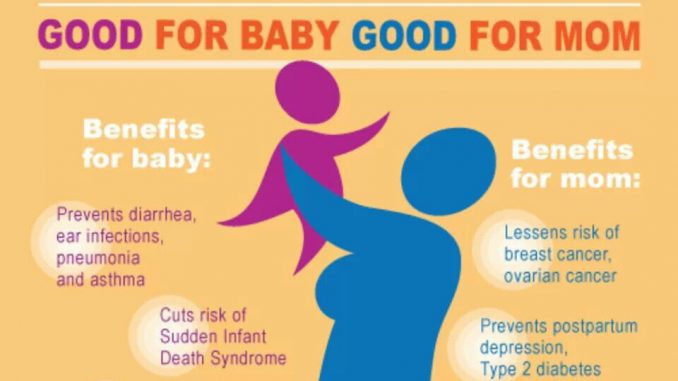The Benefits of Breastfeeding
Welcome to our comprehensive guide on the benefits of breastfeeding. In this article, we will explore the numerous advantages that breastfeeding offers for both the mother and the baby. Breastfeeding is a natural and essential process that provides optimal nutrition and promotes overall health and well-being. Let’s delve into the details and discover why breastfeeding is highly recommended by healthcare professionals worldwide.
Breastfeeding and Infant Health
Breast milk is often referred to as “liquid gold” due to its incredible nutritional value. It is specifically designed by nature to meet the unique needs of a growing baby. Here are some key benefits of breastfeeding for infant health:
Optimal Nutrition
Breast milk contains the perfect balance of proteins, carbohydrates, fats, vitamins, and minerals that a baby requires for healthy development. It is easily digested, ensuring maximum absorption of nutrients. Breast milk also adjusts its composition to meet the changing nutritional needs of the baby as they grow.
Immune System Boost
Breast milk is rich in antibodies, enzymes, and white blood cells that help strengthen the baby’s immune system. These components provide passive immunity, protecting the baby from a wide range of infections, allergies, and illnesses. Breastfed babies have a lower risk of respiratory tract infections, ear infections, gastrointestinal issues, and even sudden infant death syndrome (SIDS).
Reduced Risk of Chronic Diseases
Studies have shown that breastfeeding can significantly reduce the risk of various chronic conditions later in life. Breastfed babies have a lower likelihood of developing obesity, type 1 and type 2 diabetes, asthma, allergies, certain cancers, and cardiovascular diseases.
Cognitive and Neurological Development
The unique composition of breast milk, including essential fatty acids and nutrients, plays a crucial role in the optimal development of the baby’s brain and nervous system. Breastfed infants have been found to have higher IQ scores and improved cognitive abilities compared to formula-fed babies.
Breastfeeding and Maternal Health
While breastfeeding primarily benefits the baby, it also offers several advantages for the mother’s health and well-being. Let’s explore these benefits:
Postpartum Recovery
During breastfeeding, the release of oxytocin helps the uterus contract, reducing postpartum bleeding and promoting faster recovery. It also aids in returning the uterus to its pre-pregnancy size and helps mothers lose pregnancy weight more effectively.
Reduced Risk of Breast and Ovarian Cancer
Multiple studies have demonstrated that breastfeeding is associated with a decreased risk of breast and ovarian cancer in women. The longer a woman breastfeeds, the greater the protective effect against these types of cancer.
Improved Emotional Well-being
Breastfeeding stimulates the release of hormones like oxytocin, also known as the “love hormone.” This hormone promotes bonding between mother and baby and helps reduce stress and anxiety levels. It can contribute to a mother’s overall emotional well-being and lower the risk of postpartum depression.
Natural Contraceptive Effect
Exclusive breastfeeding can act as a natural form of contraception, known as the lactational amenorrhea method. This method is effective during the first six months after childbirth when the baby is exclusively breastfed, and the mother hasn’t resumed menstruation.

Breastfeeding offers a multitude of benefits for both the baby and the mother. From providing optimal nutrition and boosting the immune system to reducing the risk of chronic diseases and promoting maternal health, breastfeeding is a remarkable natural process with lifelong advantages. It is a unique bonding experience that nurtures physical, emotional, and cognitive development. If you can breastfeed, it is highly recommended to embrace this beautiful journey for the well-being of both you and your baby.
Frequently Asked Questions
1. Why is breastfeeding beneficial for babies?
Breastfeeding provides essential nutrients, and antibodies, and promotes a strong immune system.
2. How does breastfeeding benefit the mother?
Breastfeeding helps with postpartum weight loss, reduces the risk of breast and ovarian cancer, and promotes bonding with the baby.
3. Can breastfeeding reduce the risk of allergies in babies?
Yes, breastfeeding has been shown to reduce the risk of allergies, asthma, and eczema in babies.
4. Does breastfeeding help in preventing childhood obesity?
Yes, breastfeeding has been linked to a reduced risk of childhood obesity later in life.
5. What are the benefits of breastfeeding for the mother’s mental health?
Breastfeeding releases hormones that promote relaxation and bonding, reducing the risk of postpartum depression.
6. Can breastfeeding help in spacing pregnancies?
Yes, breastfeeding can act as a natural form of contraception, delaying the return of fertility.
7. Does breastfeeding improve the baby’s brain development?
Studies have shown that breastfeeding is associated with improved cognitive development and higher IQ scores.
8. How does breastfeeding benefit the environment?
Breastfeeding reduces the need for formula production, packaging, and transportation, resulting in a smaller carbon footprint.
9. Can breastfeeding reduce the risk of Sudden Infant Death Syndrome (SIDS)?
Yes, breastfeeding has been linked to a lower risk of SIDS in infants.
10. What are the long-term benefits of breastfeeding?
Long-term benefits of breastfeeding include reduced risk of chronic diseases such as diabetes, hypertension, and certain cancers.




